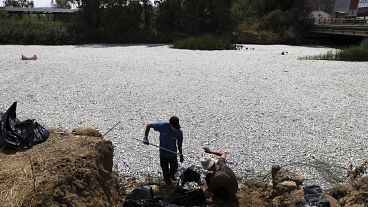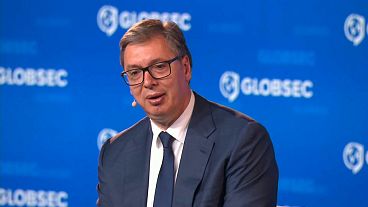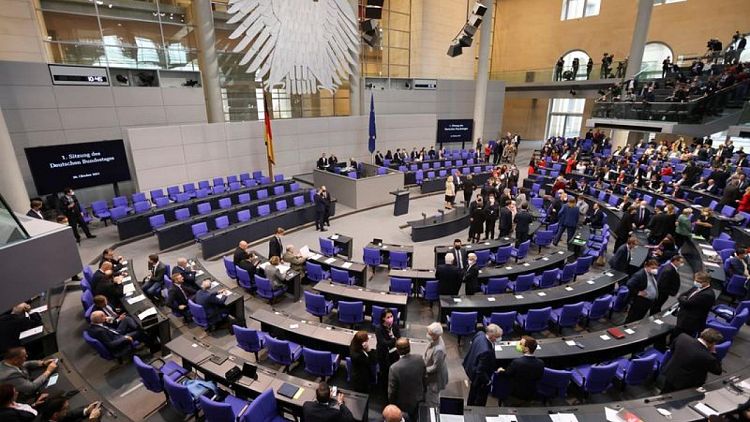BERLIN - Germany's new lower house of parliament, the Bundestag, met for the first time on Tuesday following a federal election last month.
Here's an overview of why it is meeting now, before a government has been formed, and what happens next.
WHY IS IT CONVENING ALREADY?
Germany elected a new Bundestag - the 20th in its post-war federal history - in a national election on Sept. 26.
The constitution stipulates that parliament must meet 30 days at the latest after election day, ending the term of its predecessor.
WHAT HAPPENS AT THE INAUGURAL SESSION?
On the agenda is the election of a Bundestag president, or speaker, who traditionally comes from the largest parliamentary group - in this case the centre-left Social Democrats (SPD) - and of other members of the parliamentary presidium.
The president helps set the debate schedule and defines parliamentary rules.
The SPD - currently in talks on forming a coalition government with the Greens and the Free Democrats (FDP) - has nominated health policy specialist Baerbel Bas.
Her appointment would ensure the country's three top political offices - the others being chancellor and federal president - are not all held by men.
The Bundestag is able to pass laws after members are sworn in, though this rarely happens rarely while coalition talks are still ongoing. The Bundestag would not usually meet again until the election of a chancellor was on the agenda.
WHAT HAPPENS TO ANGELA MERKEL?
Under the constitution, a chancellor's term ends when the new Bundestag convenes. However, if no new government has been formed, the outgoing chancellor stays in office as caretaker until a successor is elected.
There are no formal restrictions on the acting chancellor's powers during this time. Still, Merkel is a consensus seeker and previous chancellors have not taken radical decisions during such windows.
WHEN DOES A NEW CHANCELLOR TAKE OFFICE?
Policy experts aim to fill in the many gaps left in a preliminary 12-page coalition agreement struck between the SPD, Greens and FDP in the coming weeks so that a government can be formed.
Germany's last full coalition deal, reached between Merkel's conservatives and the SPD in 2018, ran to 175 pages and contained commitments on legislation the parties would enact.
There is no deadline for the formation of a government, and negotiations between election day in 2017 and Merkel being sworn in for her fourth and final term took a record 171 days.
Deals on previous coalitions have taken between 23 and 86 days to complete, and the heads of the SPD, Greens and FDP aim to have the next chancellor - most likely the SPD's Olaf Scholz - elected by the Bundestag in the week of December 6.
HOW DOES THE ELECTION OF THE CHANCELLOR WORK?
The federal president puts forward a candidate that he or she believes is capable of winning an absolute majority in the Bundestag. So far, every chancellor candidate has made it through on the first try.












